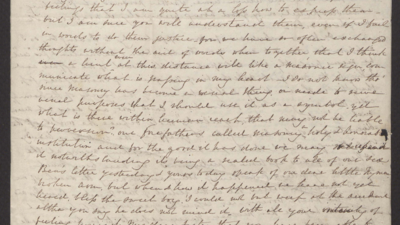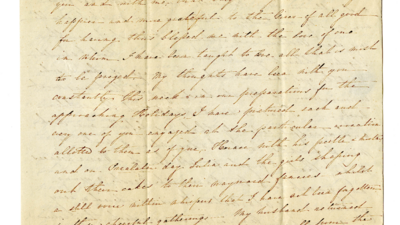Clinton Global Initiative 2008 Annual Meeting Invitation and Program
Title
Date
Contributor
Summary
This document is an invitation and program guide for the Clinton Global Initiative (CGI) Annual Meeting, which took place in New York City from September 24-26, 2008. The invitation letter, dated July 2, 2008, is personally signed by Bill Clinton and addresses Professor Elie Wiesel, inviting him to participate. The meeting aims to convene influential global leaders, including heads of state, business executives, non-profit directors, and faith leaders, to collaborate on actionable solutions for pressing global challenges. Key focus areas highlighted are energy and climate change, poverty alleviation, global health, and education. The document outlines CGI's unique approach, which includes plenary and working group sessions, fostering commitments to action, providing ongoing support, and recognizing achievements. It also lists many prominent individuals who have previously participated in the initiative and details the impressive impact of CGI's efforts in improving lives worldwide. A membership form is included for those wishing to join.
More Sources Like This
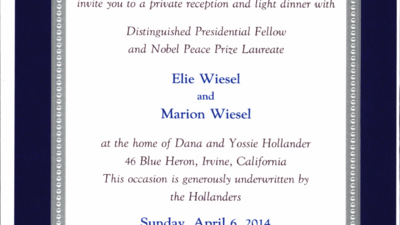
This document is an invitation to a private reception and light dinner hosted by Dana and Yossie Hollander and the Chapman University Rodgers Center Board of Visitors. The event is held in honor of Distinguished Presidential Fellow and Nobel Peace Prize Laureate Elie Wiesel and Marion Wiesel. It takes place at the home of Dana and Yossie Hollander at 46 Blue Heron, Irvine, California, on Sunday, April 6, 2014, with the reception starting at 4 p.m. and dinner at 5 p.m. The occasion is generously underwritten by the Hollanders. Guests are requested to respond by March 28.
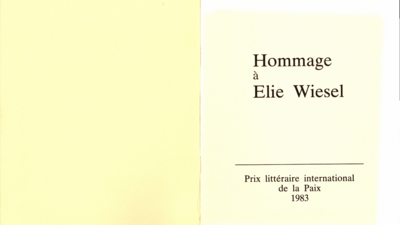
This document is a printed record commemorating the 1983 International Literary Peace Prize awarded to Elie Wiesel. It includes an overview of the prize's history, speeches, and messages from various dignitaries and organizations involved in the award ceremony held in Liège on April 23, 1983. Key individuals whose contributions are featured include Antoine Longueville (founder of the prize), Georges Sion (President of the Jury), William Ugeux (President of the Resistance Network Chiefs Committee), and Elie Wiesel himself, whose acceptance message reflects on the responsibility of survivors to bear witness and the enduring pursuit of peace amidst global conflicts. The document emphasizes the role of literature and human fraternity in promoting justice, democracy, and disarmament.
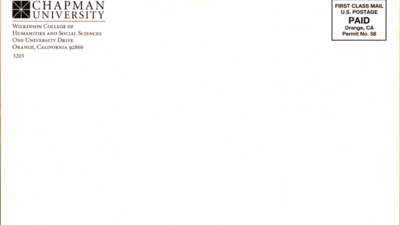
This document is a program for an event titled 'A Conversation with Elie Wiesel' held at Chapman University on April 9, 2014. The program welcomes Orange High School and includes a detailed biography of Nobel Laureate Elie Wiesel, highlighting his experiences during the Holocaust, his literary work (especially 'Night'), and his extensive activism for peace and human rights globally. It mentions his numerous awards and his involvement with The Elie Wiesel Foundation for Humanity and Boston University. The program lists participants in the event, including Professor Jan Osborn, Principal Ernie Gonzalez, and President James L. Doti, and features several quotes attributed to Elie Wiesel. The document serves as an informational booklet for attendees of the event.
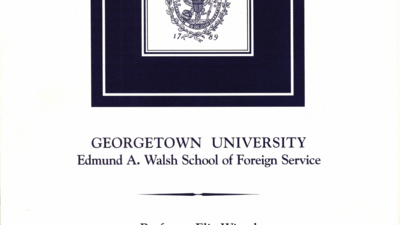
This document is a program for an event held at Georgetown University's Edmund A. Walsh School of Foreign Service on May 1, 2002, featuring Professor Elie Wiesel. The program includes an "Order of Exercise" outlining the welcome, introduction, address by Elie Wiesel, and closing remarks. It provides a detailed biography of Elie Wiesel, highlighting his work as a Nobel Peace Prize laureate, Holocaust survivor, author, teacher, and advocate for human rights and peace. It mentions his various academic positions, awards, and literary works such as "Night." The program also features a section on the Thomas J. Ernst Family, who sponsored Professor Wiesel's visit, detailing their philanthropic activities and biographical information for Thomas J. Ernst, Joanna Valgenti Ernst, Joseph Ernst, and Benjamin Ernst, emphasizing their backgrounds and contributions, particularly in areas of civil rights, education, and humanitarian efforts. The document also includes text from an older honorary degree conferral by Georgetown University to Elie Wiesel.
